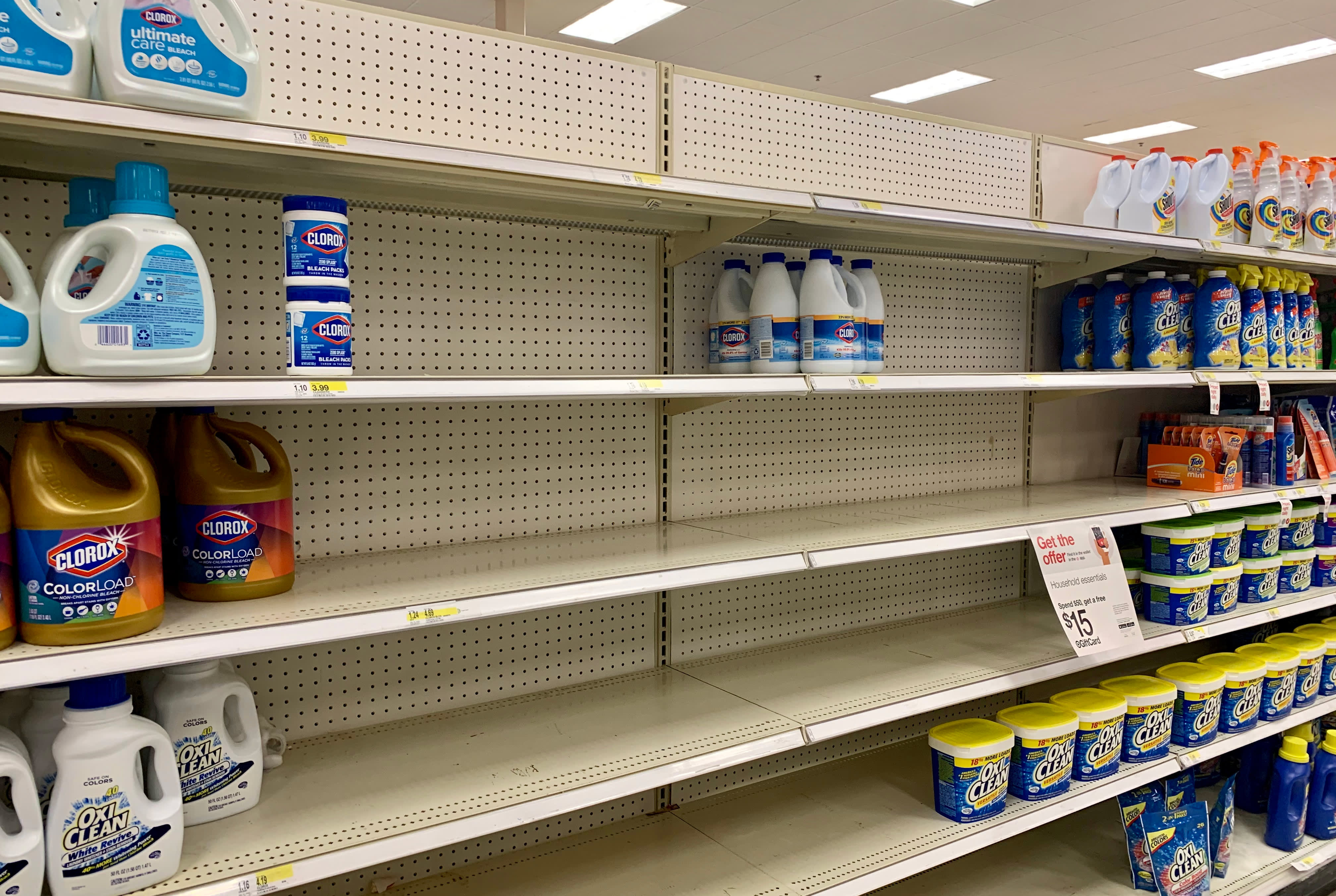Empty shelves of sanitizer products at a CVS in Rivers Edge, N.j., as a result of the coronavirus outbreak.
Fahiemah Al-Ali | CNBC
As an outbreak of a new coronavirus causes some U.S. customers to fill up shopping carts and thin out store shelves, industry groups and experts say grocers can tamp down on “panic buying” by planning ahead and trying to stay stocked.
Grocery stores, including Costco stores, have seen a spike in sales of household items like hand sanitizer, face masks and cases of bottled water in recent weeks. Sales of shelf-stable grocery items, including fruit snacks, dried beans and pretzels, are on the rise, too, according to late-February data from Nielsen.
At U.S. stores, sales of fruit snacks were up by nearly 13%, dried beans were up 10% and pretzels were up 9% in the week that ended Feb. 22, according to Nielsen data. Sales of energy drinks, pet medicine, vitamin supplements and first-aid kits also saw sales spike.
Doug Baker, vice president of industry relations at food retailer trade group FMI, said U.S. shoppers have focused on buying items for prevention and preparedness. Now, in some parts of the country, they are shifting to response mode. He said they’re buying longer-lasting grocery items, such as canned goods and frozen fruits and vegetables.
He said retailers are doing their best to predict and respond to such shifts.
“We have to try to understand what consumers are thinking before they think of it,” Baker said. “In an event like this, you have to quickly adapt to whatever consumer demand is,” he said. “And in a moment of crisis, you have some idea of the demand that may peak, but you don’t know the magnitude to which they’ll peak and the geographies where they’ll peak.”
The Centers for Disease Control and Prevention earlier Monday said there are about 91 confirmed or presumed cases of COVID-19 in the U.S. Many of those individuals contracted the virus while they were traveling. However, about 26 cases are either confirmed or presumed to be from human-to-human transmission in the U.S. At least six people in the U.S. have died, with the majority of those deaths in the Seattle area.
On Friday, the industry group published a 16-page guide to help retailers prepare for potential changes to shopping habits. For example, the industry group said shoppers may consolidate grocery trips, with fewer visits and bigger baskets. They may prefer self-checkout and online grocery delivery. And they may have new expectations for neighborhood grocery stores, such as seeing all food handlers wearing masks and gloves and having antibacterial wipes available for use in stores.
Grocery delivery companies Instacart and FreshDirect have both reported a surge in business. Instacart said in a statement Monday that it’s had more demand than usual for bottled water, hand sanitizer and other household essentials. FreshDirect said Friday that it had delivery delays and increased demand for fresh seafood, fresh chicken, baby food and household cleaning products.
On his own weekend grocery shopping trip in northern Virginia, Baker said he saw plenty of shoppers and thinned-out shelves of antibacterial hand soap and hand sanitizer.
“It’s not often you have to reach to the back of the shelf to get Lysol hand wipes,” he said.
Scott McKenzie, global intelligence leader at Nielsen, said consumer behavior with the coronavirus roughly mirrors grocery shopping ahead of extreme weather events like hurricanes or snowstorms. With the coronavirus, however, he said shoppers are especially interested in packaged products and items that haven’t traveled far.
He said sales of fresh food items like fruits and vegetables and imported items, such as European cheeses and meats, are likely to take a hit in the U.S. On the other hand, he said, local items and sealed goods, such as granola bars, will likely gain popularity.
Cornell University business professor Karan Girotra, who studies the grocery supply chain, said stores can limit “panic buying” by reassuring customers they are prepared and have adequate supply. He said they should accelerate imports and hold back items in centralized stock, so they can send additional supply to stores and regions of greatest need. He said stores could also consider rationing the number of each item that customers can buy.
He said the coronavirus has caused “a supply side and demand side shock,” but he worries the most about customers’ fears exacerbating the problem.
“It’s like having a bank run,” he said. “If people really start panicking and start stocking up on things, then I think all bets are off. It becomes a self-fulfilling prophecy.”
— CNBC’s Courtney Reagan contributed to this report.
